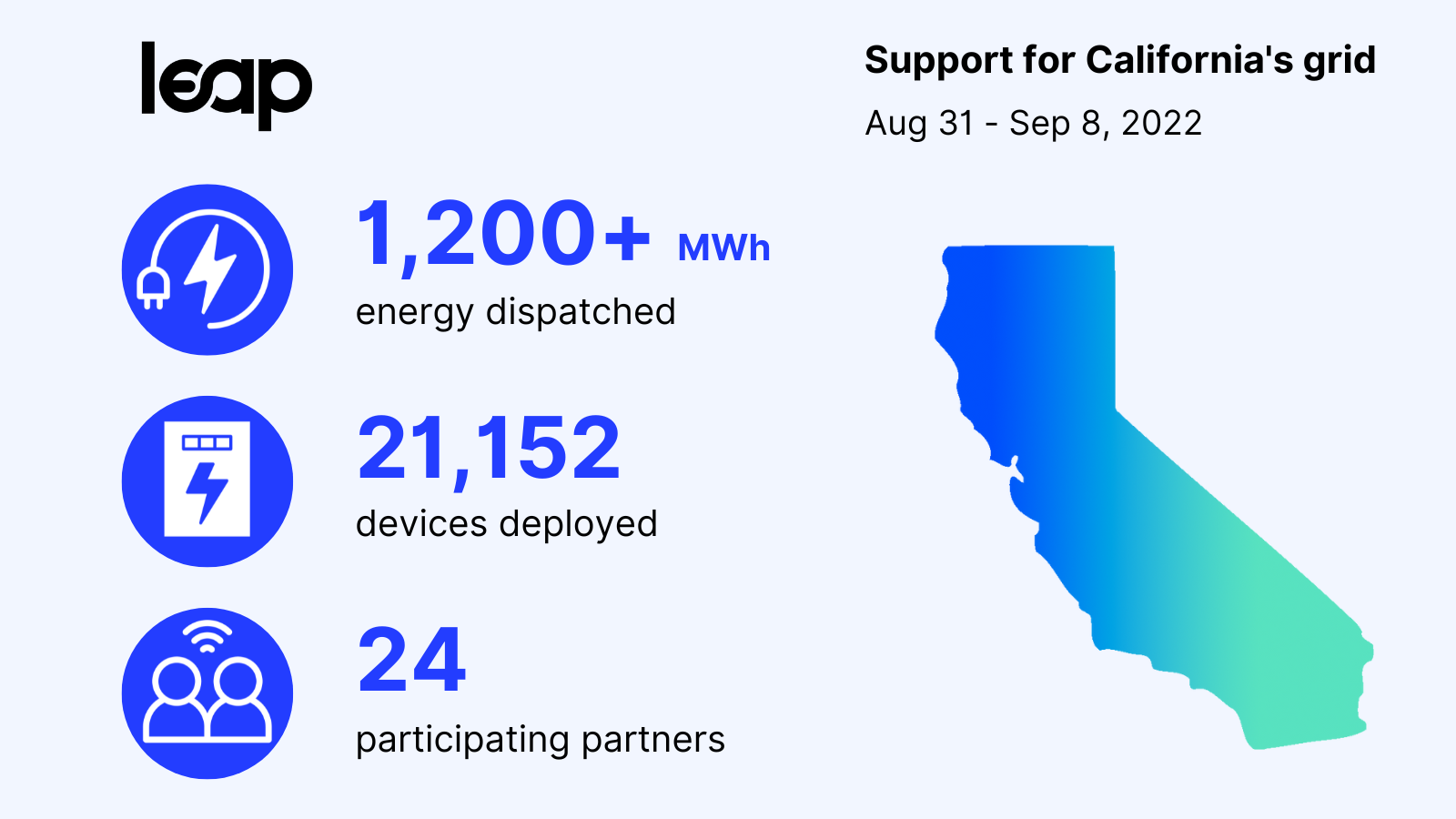Demand Response
At USV, our climate thesis is about both mitigating and adapting to the climate crisis. One way we can adapt to the climate crisis is by building a more resilient energy supply system. Demand Response is one of many approaches that will be necessary to do that.
Demand Response is when consumers of energy voluntarily cut back on energy consumption in reaction to peak demand situations. There are many different ways this is done, and energy companies will often offer economic incentives for their customers to do this.
A great example of this is what happened in the recent heat wave in California in early September. Our portfolio company Leap aggregates energy consumption devices across a partner network via their API tools. They recently wrote a blog post about how their demand response network performed in California during the early September heat wave.

Leap aggregated 21,152 energy consumption devices (smart thermostats, EV chargers, etc) across 24 participating partners in California.
As Leap wrote in that blog post:
On September 6th, the California power grid peak demand hit 52,061 MW, a new all-time record for CAISO. Demand-side reductions were instrumental to preventing rolling blackouts as extreme temperatures caused demand for electricity to spike across the state.
Leap’s network of 21,152 devices was able to curtail about 115MW of that demand at peak. That is about 0.22% of the total peak demand in California and represents the equivalent of a small traditional power plant or large solar farm that would cost tens of millions of dollars to construct.
Leap’s network is not the only Demand Response network operating in California. There are many of them and the total amount of demand curtailed by Demand Response networks was certainly a big factor in avoiding brownouts during the recent heat wave.
If you have smart energy devices in your home or office, you should look into how to connect them to a demand response network. Helping to curtail energy consumption during peak demand situations will be an important part of adapting to the climate crisis.






